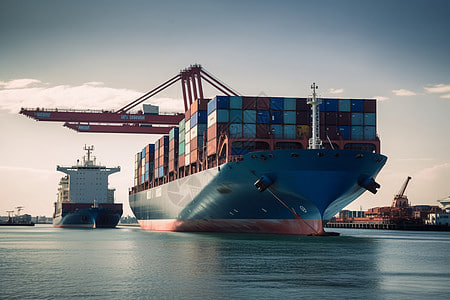Mexico's Tariff Retaliation: A Deep Dive into Economic Strategy and Geopolitical Implications
Meta Description: Mexico's response to tariffs, President Sheinbaum's strategy, economic implications, geopolitical impact, trade negotiations, NAFTA successor (USMCA), retaliatory tariffs, international relations, Mexican economy, trade policy.
Imagine this: The global trade landscape is a delicate ecosystem, a complex web of interconnected economies constantly vying for competitive advantage. Suddenly, a domino falls – a new tariff is imposed, sending ripples across the ocean of international commerce. This isn't some abstract theoretical scenario; it's the reality facing Mexico, a nation grappling with the ramifications of potential trade barriers and strategizing its response. President Sheinbaum's recent announcement that Mexico is meticulously crafting its retaliation plan isn't just a headline; it's a pivotal moment demanding careful analysis. This isn't about dry economic figures; it's about the livelihoods of millions, the stability of an entire nation, and the shifting sands of global geopolitical power. We'll dissect the complexities behind Mexico's response, exploring the potential targets, the economic and political consequences, and the larger implications for the North American trade relationship. Prepare for a deep dive into a scenario that's far more nuanced than a simple tit-for-tat trade war. We'll go beyond the headlines, beyond the press releases, and delve into the real-world considerations shaping Mexico's strategic decision-making. Get ready to understand the intricate dance of diplomacy, economics, and political maneuvering – because the stakes are incredibly high, and the outcome will impact us all. This isn't just about tariffs; it's about the future of global trade and the vital role Mexico plays within it. Let's unravel this intricate puzzle together.
Mexico's Retaliatory Tariff Strategy
President Sheinbaum's statement signals a calculated approach, not a knee-jerk reaction. Mexico's economic team isn't just throwing darts at a board; they're meticulously evaluating potential targets for retaliatory tariffs. This careful planning reflects a deep understanding of the delicate balance between inflicting economic pain and avoiding escalating the conflict into a full-blown trade war that could cripple its economy. The process involves a multi-pronged strategy encompassing:
- Identifying Vulnerable US Industries: The key is to target US sectors heavily reliant on Mexican exports, maximizing the economic impact while minimizing collateral damage to Mexico. This requires in-depth market analysis, identifying industries with limited alternative suppliers and high price sensitivity. Think of it as a game of economic chess, where each move must be carefully considered.
- Legal and WTO Compliance: Mexico is bound by international trade agreements, primarily the USMCA (formerly NAFTA). Any retaliatory measures must adhere to these rules to avoid further complications and potential legal challenges. This legal framework adds another layer of complexity to the strategic planning.
- Public Opinion and Domestic Politics: Mexico's response also needs to consider domestic political ramifications. Public support is crucial, and the government needs to carefully manage expectations and communicate its strategy effectively to avoid triggering public unrest.
The specific details are closely guarded, a testament to the strategic importance of maintaining a degree of surprise. However, likely targets might include agricultural products, manufactured goods, or even specific technologies where the US enjoys a significant export surplus to Mexico. Leaked documents (though unconfirmed) suggest a focus on sectors with strong lobbying power in the US, aiming to apply pressure on specific political groups.
Economic and Geopolitical Implications
The ripple effect of this trade dispute extends far beyond Mexico and the US. The global economy is interconnected, and any significant disruption in the North American trade relationship will have knock-on effects on other nations. Here's a breakdown:
- Economic Uncertainty: Uncertainty is the enemy of investment and economic growth. The ongoing trade tensions create instability, potentially discouraging investment in both Mexico and the US. This uncertainty could lead to job losses and reduced economic output.
- Supply Chain Disruptions: North America boasts intricate supply chains, with Mexico playing a crucial role in manufacturing and supplying various goods to the US and beyond. Disruptions to these chains would lead to delays, increased costs, and potential shortages.
- Geopolitical Shifts: This trade dispute also has significant geopolitical dimensions. It could strengthen ties between Mexico and other trading partners, potentially shifting alliances and creating new economic blocs. Consider the potential for strengthened relationships with China or the EU as Mexico seeks to diversify its trade relationships.
The Role of the USMCA
The USMCA, the successor to NAFTA, is a significant factor in this ongoing trade dispute. The agreement provides a framework for resolving trade disputes, but it also includes safeguards and mechanisms that could be triggered by retaliatory tariffs. Understanding the intricacies of the USMCA is crucial to analyzing Mexico's strategy and predicting the outcome of this trade standoff. Its dispute resolution mechanisms will play a crucial role in navigating the situation.
Frequently Asked Questions (FAQs)
-
Q: How severe will Mexico's retaliatory tariffs be? A: The severity will depend on several factors, including the specific US tariffs Mexico is responding to, the desired economic impact, and the need to comply with international trade rules. It's unlikely to be a full-scale trade war, given the extensive economic interdependence.
-
Q: What industries will be most affected by Mexico's response? A: Likely targets include US industries heavily reliant on Mexican exports and possessing limited alternative supply sources. Agricultural products and specific manufacturing sectors are prime candidates.
-
Q: Will this escalate into a broader trade war? A: While escalation is a possibility, both countries have a vested interest in avoiding a full-blown trade war. Negotiations and diplomatic efforts will likely play a crucial role in preventing wider conflict.
-
Q: What role does the USMCA play in this situation? A: The USMCA provides a framework for resolving trade disputes, including mechanisms for addressing retaliatory tariffs and preventing escalation. Its dispute resolution processes will be critical in navigating the situation.
-
Q: How will this affect consumers in both countries? A: Consumers in both the US and Mexico will likely face higher prices on certain goods, depending on the specific products targeted by the retaliatory tariffs.
-
Q: What is the long-term outlook for US-Mexico trade relations? A: The long-term impact depends on the outcome of the current dispute and the willingness of both governments to engage in constructive dialogue and find mutually beneficial solutions. A sustained period of trade tension could damage the relationship, while a swift resolution could minimize the negative effects.
Conclusion
Mexico's response to potential tariffs is a complex interplay of economic strategy, geopolitical maneuvering, and domestic politics. President Sheinbaum's measured approach reflects a careful consideration of various factors, aiming to protect Mexico's economic interests while mitigating potential risks. The outcome will significantly impact not only Mexico and the US but also the broader global economy. The situation underscores the increasingly interconnected nature of global trade and the need for collaborative solutions to avoid escalating trade conflicts. The coming months will be crucial in determining whether this situation de-escalates or spirals into a larger trade dispute, with far-reaching implications for global commerce. The watchful eye of the international community remains fixed on this developing saga, hoping for a resolution that minimizes economic disruption and fosters continued cooperation between these vital trading partners.



